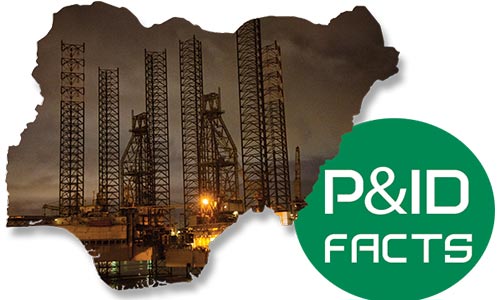Nigeria v P&ID: We Review What We Can Learn From The Court Process

I am sure a lot of you have seen the news that Nigeria recently won an important case in the UK courts against P&ID. So what happened?
Summary of the case
This scandal began in the late 2000s when the administration of then-President Umaru Musa Yar’Adua planned to address Nigeria’s energy supply crisis by exploiting vast untapped gas reserves in its mineral-rich Niger Delta region.
Seizing the opportunity, Process & Industrial Developments (P&ID) pitched an ambitious project to the petroleum ministry, to build and operate a gas-processing plant near the southern city of Calabar despite having never undertaken a project like that before.
Under the terms of the agreement, the government would provide wet gas to P&ID for free over 20 years. The two parties would then split the processed resource, with the government using its share to help power the country’s energy grid.
But the project never got off the ground. P&ID never built the plant and Nigeria never provided the company with any gas. P&ID blamed the government for the failure and convinced an arbitration panel it had been wronged.
In January 2017, a London-based arbitration panel ruled that Nigeria pay €6.21bn to P&ID as compensation for breaching the contract awarded in 2010. The panel awarded the company damages equivalent to the total hypothetical profit the company would have made over the lifespan of the contract – €6.21bn plus interest of €1.22m per day from the time the contract was breached. That amount has since ballooned to €10.72bn with interest.
Nigeria refused to pay and sued P&ID at London’s High Court, saying P&ID had bribed senior officials to obtain the contract and corrupted the country’s lawyers to obtain confidential documents during the arbitration. P&ID denied this and accused Nigeria of institutional incompetence. The court found that P&ID had paid bribes to a Nigerian oil ministry official in connection with the gas contract signed in 2010, and had failed to disclose this when it later took Nigeria to arbitration over the collapse of the deal.
The judge said a further hearing would take place to decide whether to send the case back to arbitration or ditch the €10.34 billion award without further delay. P&ID can also appeal the case.
Here are few links that give some more detail about the case:
Revealed: Ex-Nigerian gov’t official to share in €10.34bn gas scandal damages
Ill-Health Stalls Trial Of Grace Taiga, Former Nigerian Director Who Is Accomplice In P&ID Scam
Trial Of P&ID Commercial Director, Kuchazi Stalled In Nigerian Court Over Lawyer’s Illness
Contract at heart of €10.34bn claim on Nigeria found to be fraudulent
What does this court judgment teach us?
You know what we do at Lawpadi, we take something that happens in the legal space in Nigeria, and we think to ourselves…what can we teach our subscribers about this? In this case, you can see that the court overturned the arbitration award because the court decided that the contract was obtained by fraud – so fraud can invalidate a contract.
So what else can invalidate a contract?
Illegal subject matter – If the subject matter is illegal, the contract will not be valid. If the formation or performance of the contract will require a party to break the law, the contract is invalid. e.g. Agreement for the sale or distribution of prohibited substances, such as drugs
Contracts formed under duress – Duress is when pressure is exerted upon a person to make that person enter into a contract they otherwise wouldn’t enter. It could be by use of force, such as when a person is held at gunpoint, or the threat of force. For an action to amount to duress, it must be unlawful.
Unconscionability – Unconscionability is when the terms of a contract are harsh, unfair, excessively oppressive, and unduly one-sided.
Lack of capacity to enter a contract – For a contract to be valid, all the parties must have the legal capacity to contract. Certain persons by law cannot enter a contract – minors, persons with a mental deficiency, persons under the influence of drugs or alcohol etc.
Public Policy – Contracts can be found unenforceable on grounds of public policy not only to protect one of the parties involved, but also because what the contract represents could pose harm to society as a whole. For example, a court will never enforce a contract promoting something already against state or federal law (you can never enforce a contract for an illegal marijuana sale) or an agreement that offends the “public sensibilities” (contracts involving some sort of sexual immorality, for example).
So there you have it, now you know how a contract can be invalid.
Culled from LawPadi

